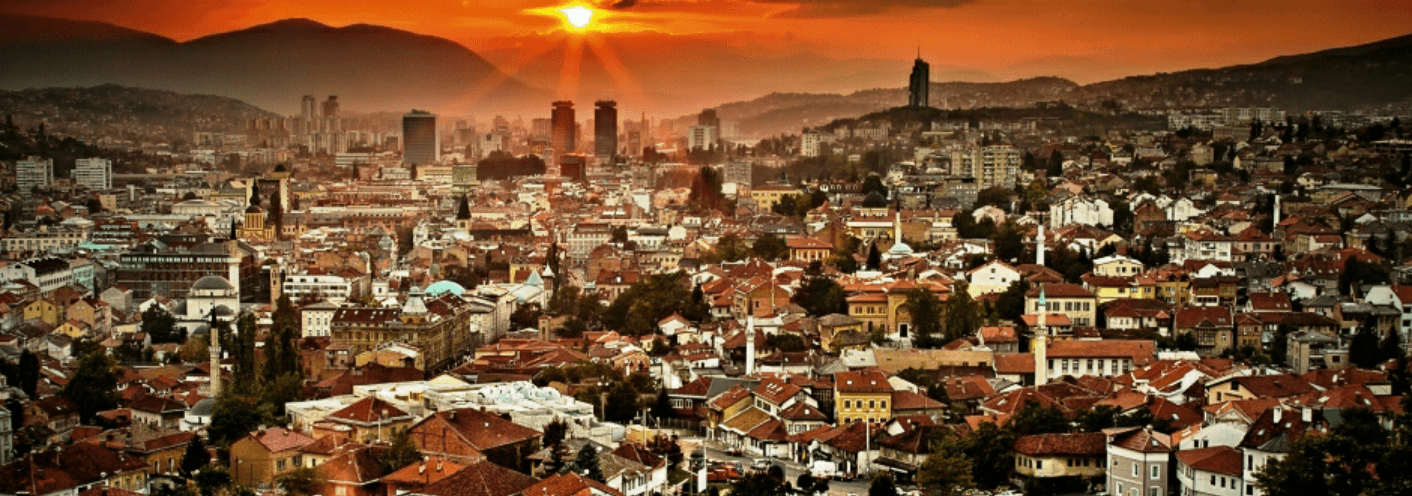WELCOME TO SARAJEVO THE CAPITAL OF BOSNIA AND HERZEGOVINA
Sarajevo is the capital and largest city of Bosnia and Herzegovina, with an estimated population in the metropolitan area of 608,354 inhabitants. Nestled within the greater Sarajevo valley of Bosnia, it is surrounded by the Dinaric Alps and situated along the Miljacka River in the heart of Southeastern Europe and the Balkans. Sarajevo is the leading political, social and cultural center of Bosnia and Herzegovina. The city used to be famous for its traditional cultural and religious diversity, with adherents of Orthodoxy, Islam, Judaism and Catholicism and coexisting there for centuries. Due to this long and rich history of religious and cultural variety, Sarajevo was sometimes called the “Jerusalem of Europe” or “Jerusalem of the Balkans”. It was, until recently in the 20th century, the only major European city to have a mosque, Catholic church, Orthodox church and synagogue within the same neighborhood.

A regional center in education, the city is also home to the Balkans’ first institution of tertiary education in the form of an Islamic polytechnic called the Saraybosna Osmanlı Medrese, today part of the University of Sarajevo.
The settlement in the area stretches back to prehistoric times,the modern city arose in the 15th century. Sarajevo has attracted international attention several times throughout its history. In 1885, Sarajevo was the first city in Europe and the second city in the world to have a full-time electric tram network running through the city, following San Francisco. In 1914,it was the site of the assassination of the Archduke of Austria that sparked World War I.Seventy years later, it hosted the 1984 Winter Olympics. In the end of the twentieth century,the city suffered the longest siege of a city in the history of modern warfare (1.425 days long).
SARAJEVO ATTRACTIONS:
- Sarajevo bridges,
- Baščaršija (Bashcharshiy- sightseeing in the old town),
- The City Hall (http://www.vijecnica.ba/)
- Inat Kuća (Despite House; House of Spite; House of Pride),
- Tunnel Museum,
- Museum of Sarajevo (1878-1918)
- GaziHusrev-beg’s mosque,
- Tzar’s Mosque or Emperor’s mosque,
- Franciscan’s monastery and the Church of the Saint Anthony of Padua,
- Cathedral of Jesus’ Sacred Heart,
- The Orthodox Cathedral,
- The Old jewish temple,
- Ashkenazi synagogue,
- The Svrzo house,
- Abandoned Winter Olympic sites,
- Discover the delights of Bosnian cuisine (ćevap – minced meat and fried onions in bread, burek- pastry stuffed with meat, vegetables or cheese and baklava – a sweet pastry soaked in honey and sprinkled with nuts).
